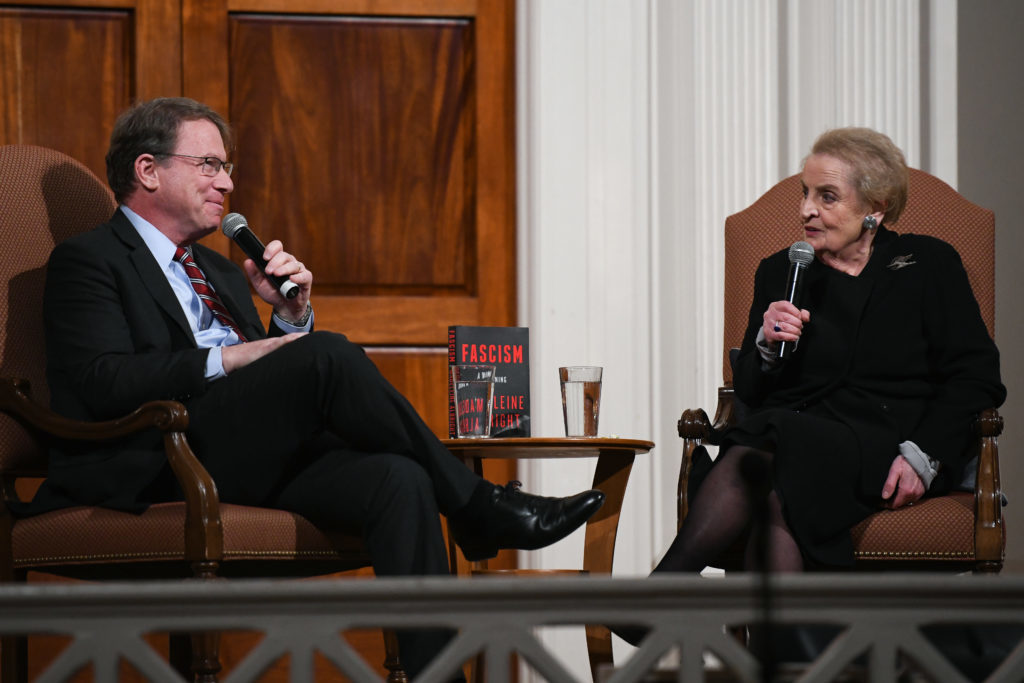Former Secretary of State Madeleine Albright showed off her foreign policy expertise and effortless wit at the Sixth & I Historic Synagogue Monday.
Albright discussed her new book, “Fascism: A Warning” with editor in chief of The Atlantic, Jeffrey Goldberg at the event, which was hosted by bookstore Politics and Prose. Albright said she planned to write her book, which came out last week, regardless of 2016 presidential election results, but talked about her concern for America’s future at the event.
“I am not calling him a fascist,” Albright said referring to President Donald Trump. “I do think that he is the least-democratic president in modern history.”
Albright said Trump’s treatment of the press and judiciary – as well as the divisions he fosters in society – are concerning. While she didn’t call the president a fascist, other autocratic leaders, like former Italian Prime Minister Benito Mussolini, used similar slogans to the ones Trump employs, like “drain the swamp,” she said.
Albright added that when Trump talks about “fake news,” he legitimizes leaders who use the term to discredit facts and independent media outlets in their countries.
“As a former diplomat, you’re not supposed to criticize your own country,” Albright said. “But it’s impossible to explain what Trump is doing.”
Before the event Monday night, Albright appeared as a guest on The Lead with Jake Tapper on CNN, where she said her interview was interrupted by a breaking news story that perfectly captured the state of the Trump White House.
“I was the first woman Secretary of State and I was the first Secretary of State to go visit Kim Jong-il in North Korea,” Albright said. “Today I had another first — it was the first time that I have ever been interrupted by a porn star.”
In talking about the dangers of an autocratic government, Albright spoke about her childhood. In 1939, she fled from her native Czechoslovakia and less than a decade later, she fled again.
She said fell in love with the United States when American soldiers came to liberate Czechoslovakia after World War II. Although she criticized the presidential administration, she said her patriotism is as strong as ever today.
“When America is not present in the world, terrible things happen,” she said. “When we somehow help, then better things happen.”
Albright said she hates the divisiveness of American politics today. She said politicians from opposite sides of the aisle no longer search for common ground and she encouraged the audience take time to listen to people they disagree with. Albright said she listens to right-wing radio as she drives to work every morning in an effort to understand people on the other side of the aisle.
“Yes, I yell and I give people the finger,” Albright said, drawing laughs from the audience.
Albright closed the event by encouraging people to do “positive things,” like run for office or support those who were, especially at the local level. She said she hoped to see more activism and participation by young people, both domestically and abroad.
“There’s a saying that goes, ‘See something. Say something,’” Albright said. “I’ve added to it, ‘do something.’ And that’s what I’m trying to do by writing the book.”




